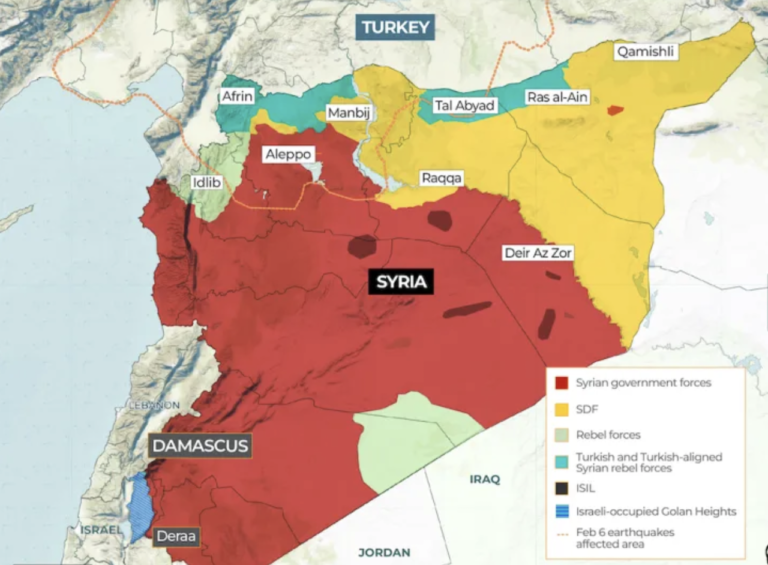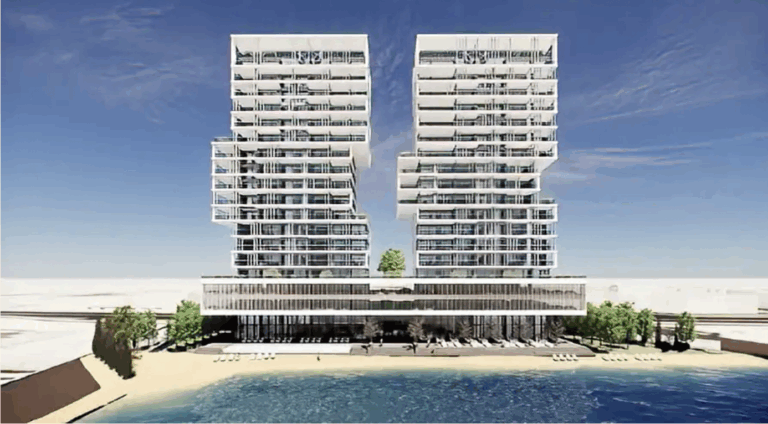By Andrea Tucci,
Twelve years on from the beginning of Syria’s war Millions are still displaced and hundreds of thousands have died in 12 years of fighting, but al-Assad remains in power.
February 2023, devastating earthquakes worsened already dire conditions, especially in hard-hit rebel-held areas of the northwest, where millions were left without access to critical search-and-rescue reinforcements or lifesaving aid for over a week. Despite calls for a nationwide ceasefire, hostilities persisted, resulting in civilian casualties and displacement. Arab states readmitted Syria to the Arab League without demanding accountability or reform.
Even before the earthquakes, the UN had said that 14.6 million Syrians were in need of humanitarian assistance, with 6.9 million people internally displaced and more than 5.4 million Syrian refugees living in neighbouring countries. Hundreds of thousands also sought asylum in Germany, and other parts of the European Union, as well as further afield.
In positive news for accountability, Canada and the Netherlands filed a joint case at the International Court of Justice against Syria over widespread and systematic torture. Individual accountability efforts continued with war crimes convictions in European courts, and in June, the UN established a new mechanism to address the fate of the over 100,000 missing persons in Syria.
SSF Government-Held Areas (Central, West, and Southern Syria)
Syrian security forces and government-affiliated militias (supported by the Russian, Iran) continued to arbitrarily detain, disappear, and mistreat people across the country. Authorities also continued to unlawfully confiscate property and restrict access to areas of origin for returning Syrians. Russia and Iran has been a long-time ally of al-Assad, and swung behind him as soon as the protests began. Since then, the Iranian military presence has grown in Syria, along with that of Iranian-trained fighters from countries such as Lebanon (Hezbollah), Iraq and Afghanistan. These forces have been instrumental in supporting the Syrian government. Criminalizing torture, torture and ill-treatment in government facilities continued and deaths in detention were documented, according to a July 2023 UN Commission of Inquiry (COI) report. In a report issued in August, the commission also documented arbitrary arrests and detention through the application of a draconian cybercrimes law introduced in April 2022.
HTS Opposition held northwest Syria
Hay’et Tahrir al-Sham (HTS, an al-Qaeda affiliate), the dominant anti-government armed group in Idlib, continued to raid and arbitrarily detain activists, journalists, and other civilians voicing critical opinions.
Opposition-held northwest Syria is home to more than 4.1 million civilians, at least half of whom have been displaced at least once since the start of the conflict. Civilians in these areas are effectively trapped, lacking resources to relocate, unable to seek asylum in Türkiye, and fearing persecution if they attempt to relocate to government-held areas.
Turkish-Occupied Territories of Northern Syria
The Turkish Armed Forces and its ally the Syrian National Army have occupied areas of northern Syria since August 2016, during the Syrian Civil War. Though these areas nominally acknowledge a government affiliated with the Syrian opposition, in practice they constitute a separate proto-state under the dual authority of decentralized native local councils and Turkish military administration.
The Syrian Democratic Forces (SDF)
The Syrian Democratic Forces (SDF), is a coalition formed by ethnic militias and rebel groups, is allied and supplied by the United States. The SDF is opposed by Turkey, who claims the group has direct links to the PKK, which it recognizes as a terrorist group. A US-backed Kurdish-led armed group that controls much of northeast Syria, continued to arbitrarily detain civilians, including journalists.As of mid-November, the SDF and Asayish regional security forces continued to arbitrarily detain at least 60,000 suspected members of Islamic State (ISIS) and family members from Syria and nearly 60 other countries. Detention conditions remained life-threatening, degrading, and inhumane.Throughout the year, drone strikes by Turkish forces and hostilities between Turkish-backed local armed groups and the SDF led to civilian deaths and injuries.
Economic Crisis and Obstacles to Humanitarian Aid
By mid-2023, over 90 percent of Syrians lived below the poverty line, at least 12 million—more than half the population—could not access or afford enough quality food, and at least 15 million required some form of humanitarian aid to survive. More than 600,000 children were chronically malnourished. More than 12 years of war have decimated Syria’s civilian infrastructure and services, severely affecting access to shelter, health care, electricity, education, public transportation, water, and sanitation to severe fuel shortages and rising food prices. According to OCHA, many female-headed households, older people, people with disabilities, and children are disproportionally affected by the compounding drivers of the crisis in Syria.
The Syrian government continued to impose severe restrictions on the delivery of humanitarian aid in the government-held areas of Syria and elsewhere in the country and to divert aid to punish those who express dissent. A lack of sufficient safeguards in procurement practices by UN agencies providing aid in Syria has resulted in a serious risk of financing abusive entities.
Refugees and Internally Displaced Persons
Displacement remains one of the most dire and protracted consequences of the war. Since the start of the armed conflict in 2011, 12.3 million have been forced to flee the country, according to OCHA, with 6.7 million currently internally displaced across the country. In northeast Syria, hundreds of thousands of internally displaced people live in overstretched and under-resourced camps and temporary shelters, some of which do not receive sustained or sufficient aid.
Against a backdrop of anti-refugee sentiment, Türkiye, which hosts nearly 3.3 million refugees, deported thousands of Syrians to northern Syria in 2023. Turkish border guards indiscriminately shot at Syrian civilians on the border with Syria as well as tortured and used excessive force against asylum seekers and migrants trying to cross into Türkiye.
Between April and May, Lebanese Armed Forces summarily deported thousands of Syrians, including unaccompanied children, back to Syria. Lebanon hosts more than an estimated 1.5 million Syrian refugees who fled since 2011, making it the country with the highest population of refugees per capita in the world.
International Accountability and Justice Efforts
In April, judges in France ordered the trial of three senior Syrian security officials accused of complicity in war crimes and crimes against humanity. In May, France’s Court of Cassation concluded that the necessary conditions were met for the French judicial system to take up cases involving Syrian nationals accused of serious crimes committed in Syria. In 2023, other countries, including Germany, the Netherlands, and Sweden, pursued similar cases under their universal jurisdiction laws.
In June, Canada and the Netherlands jointly initiated proceedings against Syria at the International Court of Justice for alleged violations of the Convention against Torture. The court held hearings in October on their request for provisional measures, and on November 16, it issued its order, directing the Syrian government to take all measures within its power to prevent acts of torture and other abuses.
The Investigation and Identification Team of the Organisation for the Prohibition of Chemical Weapons in The Hague continued to investigate responsibility for the use of chemical weapons in the Syrian conflict. The team has confirmed that Syrian government forces used chemical weapons on multiple occasions.
Women Rights
In government-held areas, women face ongoing discrimination in marriage, divorce, child custody, and inheritance under the Personal Status Law. This law denies financial support to women who refuse to live with their husbands without a “valid excuse” or work without their husband’s consent, despite 2019 amendments. Although article 548 of the penal code was repealed in 2020, reducing sentences for harming female relatives during alleged “illicit” sexual acts, other provisions still allow reduced sentences for violence against women. Additionally, the penal code unfairly penalizes women for adultery, imposing harsher sentences than men.
Key International Actors
The UN-led peace process made no visible progress in 2023.
Russia, Türkiye, the United States and Iran continued to provide military and financial support to warring factions. Israel has conducted aerial strikes in Syria, including on military targets of the Syrian government’s allies Iran and Hezbollah. Such strikes targeted both Aleppo, and Damascus airports in 2023, at times forcing their temporary closure.




